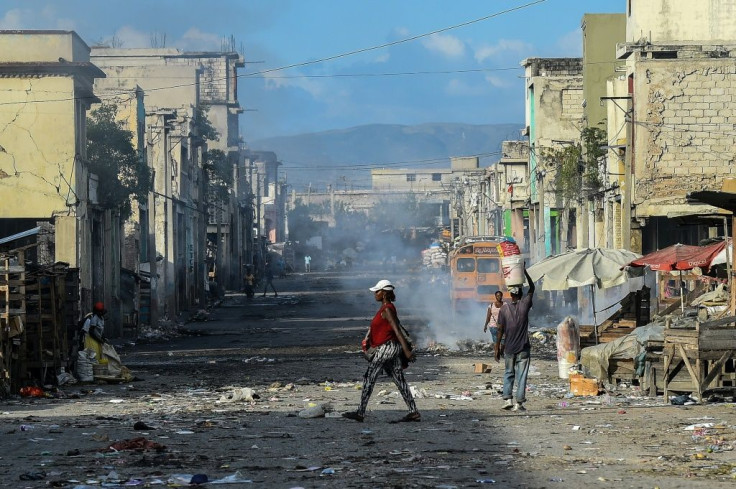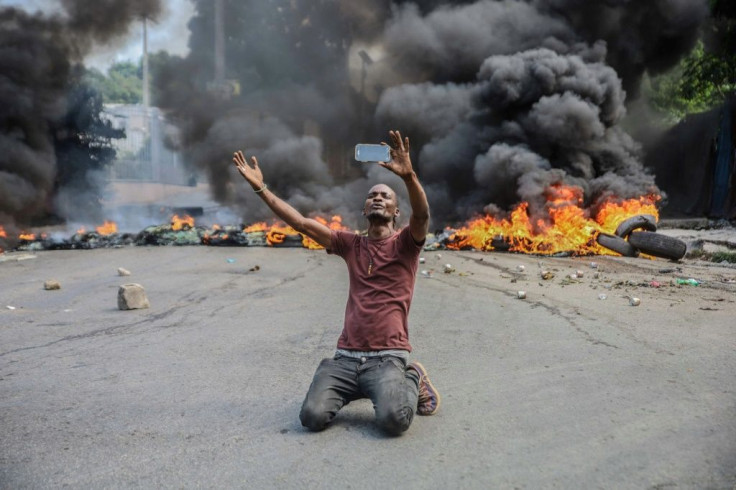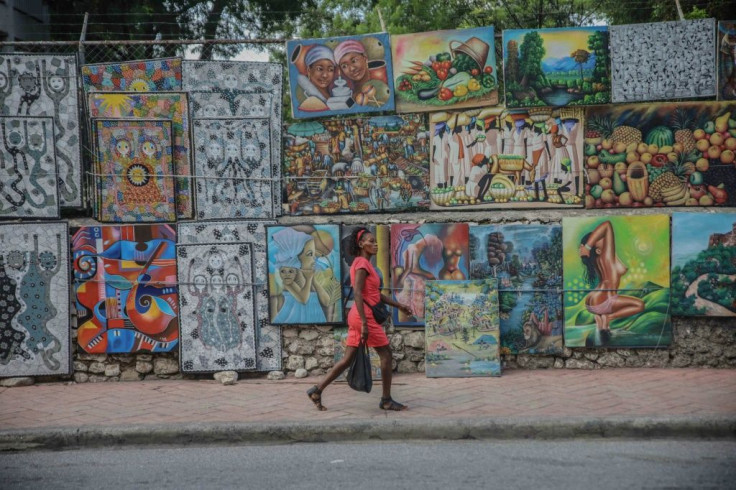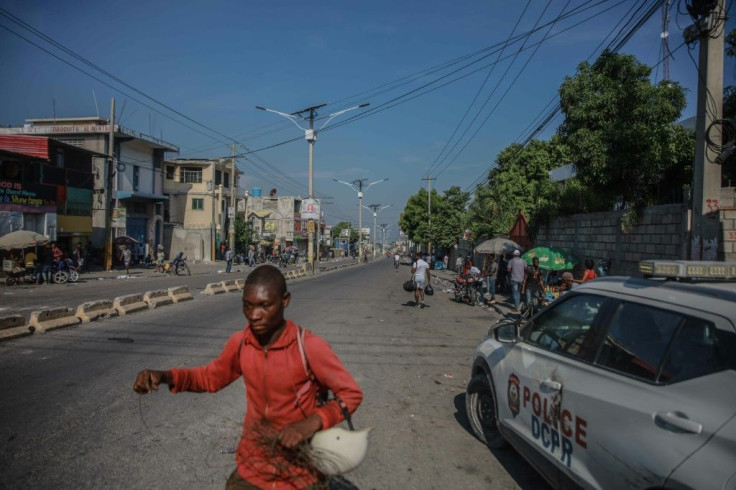Haitians On Strike As Kidnappings, Insecurity Soar
A nationwide general strike emptied the streets of Haiti's capital Port-au-Prince on Monday with organizers denouncing the rapidly disintegrating security situation highlighted by the kidnapping of American and Canadian missionaries at the weekend.
The kidnapping of 17 adults and children by one of Haiti's brazen criminal gangs underlined the country's troubles following the assassination of president Jovenel Moise in July, with lawlessness mounting in the Western hemisphere's poorest nation.
"It has been months since we appealed for help, and since we have had no security against kidnappings we have called for the population to suspend all activity," the president of Haiti's Association of Owners and Drivers, Changeux Mehu, told AFP.

"The bandits are going too far. They kidnap, they rape women, they do whatever they want," he said. "Enough."
In Port-au-Prince, shops, schools and government buildings were shuttered Monday, but schools were opened in several other towns around the country, local media said.
A few police vehicles circulated in the capital, sticking to the main roads, which were relatively quiet, although an AFP photographer reported a barricade of flaming tires in one street.

"It's as if we weren't living anymore," said Germain Joce Salvador, a young man in his twenties in the city center. "You can't go on, every day hearing that it's a loved one, a friend or someone else who is kidnapped."

Launched last week by business and professional groups in Port-au-Prince, the call for a strike took on additional resonance after the kidnapping Saturday by an armed gang of 16 Americans and one Canadian.
The missionaries work for US-based Christian Aid Ministries, which said in a statement that the group, which includes five children, was abducted east of the capital while returning from visiting an orphanage.
"The kidnapping of the Americans shows that no one is safe in the country," Mehu said. "We pay our taxes to the state. In return what we ask is to have security, so that the country can function."

Armed gangs, which have controlled the poorer neighborhoods of Port-au-Prince for years, have tightened their grip on the city and the surrounding areas, where kidnappings have surged.
The assassination of president Jovenel Moise on July 7 plunged the country into further uncertainty.
"Nature abhors a vacuum, so gangs take advantage of it to gain strength," said Gedeon Jean, director of the Center for Analysis and Research in Human Rights.
The United States in August issued a red alert on Haiti, urging Americans not to travel to the Caribbean nation because of rampant kidnapping, crime and civil unrest.
The State Department has publicly provided no details on the search for the kidnap victims, but a spokesman said Monday that US teams in Haiti were "working closely with our interagency partners ... with our partners on the ground in Haiti, to do all we can to seek a quick resolution to this."
A spokesperson said Sunday that the welfare and safety of Americans abroad is "one of the highest priorities" of the department.
The abduction took place just after the missionary group had visited an orphanage located between the Haitian capital and the border with the Dominican Republic.
Experts said the large-scale kidnapping bears the hallmarks of a gang called "400 Mawozo," which has controlled that part of Haitian territory for months without the police being able to tackle them.
In April, 10 people including two French clerics were kidnapped and held for 20 days by the "400 Mawozo" in the same region.
Haitian police declined to specify which group they suspected.
More than 600 kidnappings were recorded in the first nine months of 2021, as opposed to 231 in the same period in 2020, according to the Center for Analysis and Research in Human Rights.
The gangs sometimes demand ransoms in excess of a million dollars, and do not hesitate to demand sums that are the equivalent of decades of wages from families living below the poverty line.
© Copyright AFP 2024. All rights reserved.











